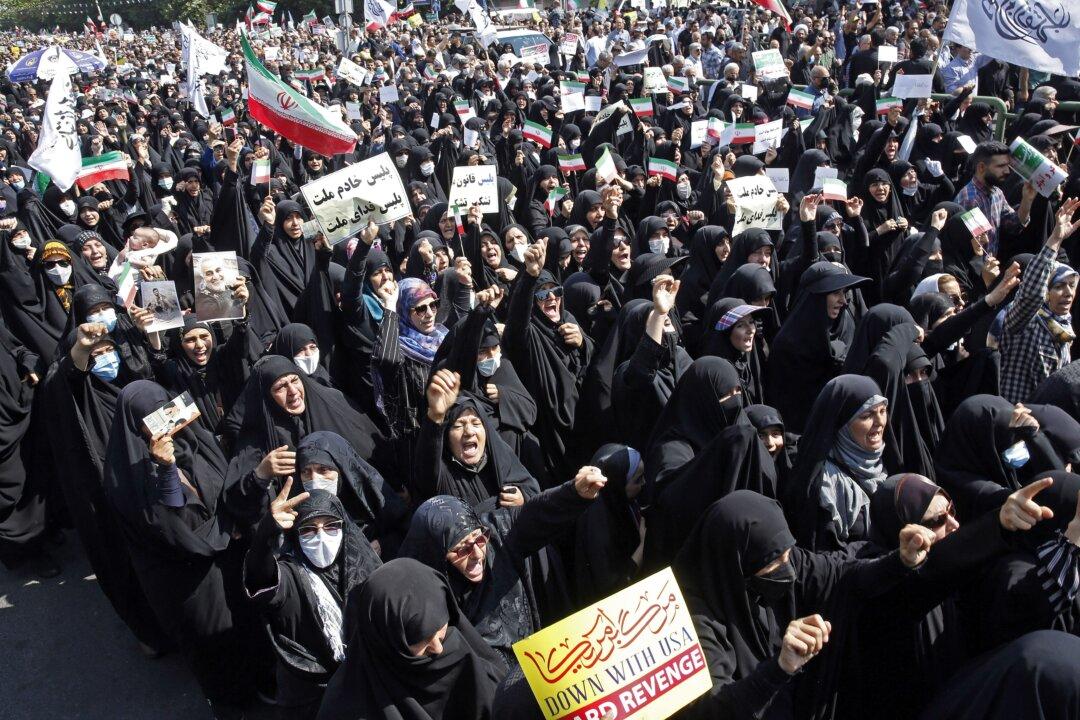United Nations member states have ousted Iran from the U.N. women’s rights body, a first for the commission, as Iran is embroiled in a protest movement sparked by the death of a 22-year-old woman in police custody in September.
A total of 29 countries on Dec. 14 voted in favor of a U.S.-led resolution to remove Iran from the U.N. commission for the remainder of its 2022–2026 term, while eight member states voted against it and 16 others abstained.





